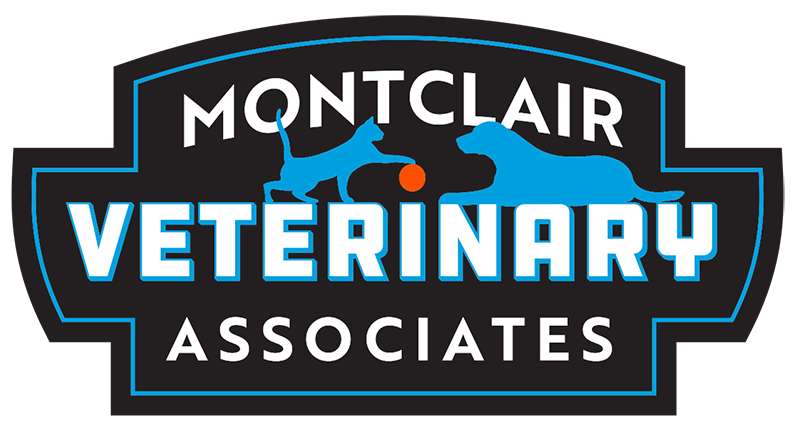Just like humans, our beloved pets experience significant changes as they age, and nowhere is this more apparent than in their nutritional needs. Senior pets face unique challenges, including slower metabolisms, decreased activity levels, and age-related health conditions that require thoughtful dietary adjustments to maintain their quality of life.
At Montclair Veterinary Associates, we recognize that proper nutrition lays the foundation for healthy aging in your pets. Because of this, our experienced team works closely with pet owners to develop customized nutrition plans that address the specific needs of senior cats and dogs, ensuring they remain comfortable and vibrant throughout their golden years.
Understanding When Your Pet Becomes a Senior
The transition to senior status varies significantly between species and breeds. Generally, cats are considered senior around age 7-10, while dogs reach senior status anywhere from 5 to 8 years, depending on their size. Larger breeds tend to age more rapidly than smaller ones, making early nutritional intervention particularly crucial.
As pets age, their bodies undergo several changes that directly impact their dietary requirements. Muscle mass naturally decreases while fat accumulation often increases, particularly around the abdomen. Their digestive systems may become less efficient at processing certain nutrients, and kidney function typically begins to decline. According to the American Animal Hospital Association, approximately 20% of dogs over age seven show signs of cognitive decline, making proper nutrition even more critical for maintaining brain health. These physiological changes mean that the veterinary services your pet received as a young adult may need to be adjusted to address their evolving needs.
Senior pets also tend to sleep more and exercise less, resulting in lower caloric requirements. However, their need for high-quality protein often increases to help maintain muscle mass and support organ function.
Key Nutritional Adjustments for Aging Pets
From increased protein requirements to adjustments in caloric intake and the addition of essential nutrients, several key changes to your pet’s diet can greatly enhance their health and well-being during their senior years.
Protein Requirements
Contrary to outdated beliefs, senior pets typically need more high-quality protein, not less. While younger pets can often maintain muscle mass on moderate protein levels, aging pets require enhanced protein intake to combat muscle wasting. Look for easily digestible protein sources like fish, chicken, or lamb.
The protein in senior diets should also be highly bioavailable, meaning your pet’s body can efficiently use it. Poor-quality proteins place unnecessary strain on aging kidneys, providing limited nutritional benefits.
Managing Calories and Weight
Weight management becomes critical as pets age. Excess weight places additional stress on joints, heart, and other organs that may already be compromised. Senior pet foods are typically formulated with fewer calories per cup while maintaining essential nutrients.
Many senior pets benefit from smaller, more frequent meals rather than one or two large portions. This approach can improve digestion and help maintain steady energy levels throughout the day.
Enhanced Nutrient Needs
Senior pets require increased levels of certain nutrients to support aging bodies:
- Omega-3 fatty acids help minimize inflammation and support cognitive function
- Antioxidants like vitamins C and E fight free radical damage
- Glucosamine and chondroitin help maintain joint health and mobility
- Fiber helps with digestion and weight management
- B vitamins support energy metabolism and nervous system function
These enhanced nutrients work together to address the multiple challenges aging pets face while supporting their overall well-being.
Special Dietary Considerations
Senior pets often develop health conditions that require specific dietary modifications. Kidney disease, which is common in aging cats, typically requires a reduced phosphorus intake and controlled protein levels. Heart conditions may necessitate sodium restriction, while diabetic pets need carefully managed carbohydrate intake.
These medical conditions require professional guidance to ensure that dietary changes support, rather than complicate, treatment. Regular monitoring through routine wellness exams allows for early detection and dietary intervention before conditions become severe.
Dental health also significantly impacts senior pet nutrition. Aging pets commonly experience dental disease that makes eating uncomfortable. Softer foods or adding warm water to dry kibble can help, though addressing underlying dental issues remains vital for overall health.
Signs Your Senior Pet Needs Dietary Changes
Watch for these subtle changes that may indicate your pet’s nutritional needs aren’t being met:
- Unexplained weight loss often signals inadequate caloric intake or underlying health issues.
- Gradual weight gain suggests excess calories or decreased activity levels.
- Changes in appetite, whether increased or decreased, warrant attention. Some senior pets become pickier eaters due to a decreased sense of smell or taste, while others may seem constantly hungry due to certain medications or health conditions.
- Physical changes like dull coat, decreased energy, or increased sleeping may indicate nutritional deficiencies or the need for dietary adjustments to support a changing health status.
Recognizing these early warning signs allows for timely intervention that can significantly improve your senior pet’s quality of life and overall health.
Expert Senior Pet Nutrition at Montclair Veterinary Associates
Navigating senior pet nutrition doesn’t have to be overwhelming when you have expert guidance. Dr. Cory Waxman brings extensive experience in senior pet care, understanding how proper nutrition supports healthy aging and enhances quality of life for your beloved companion.
Our comprehensive approach includes thorough health assessments to identify any underlying conditions that affect nutritional needs, personalized dietary recommendations tailored to your pet’s specific health status and lifestyle, and ongoing monitoring to ensure that dietary changes are providing optimal benefits. Contact us at (973) 321-7229 or visit our contact form to schedule a senior wellness consultation and create an individualized nutrition plan tailored to your aging pet’s needs.

